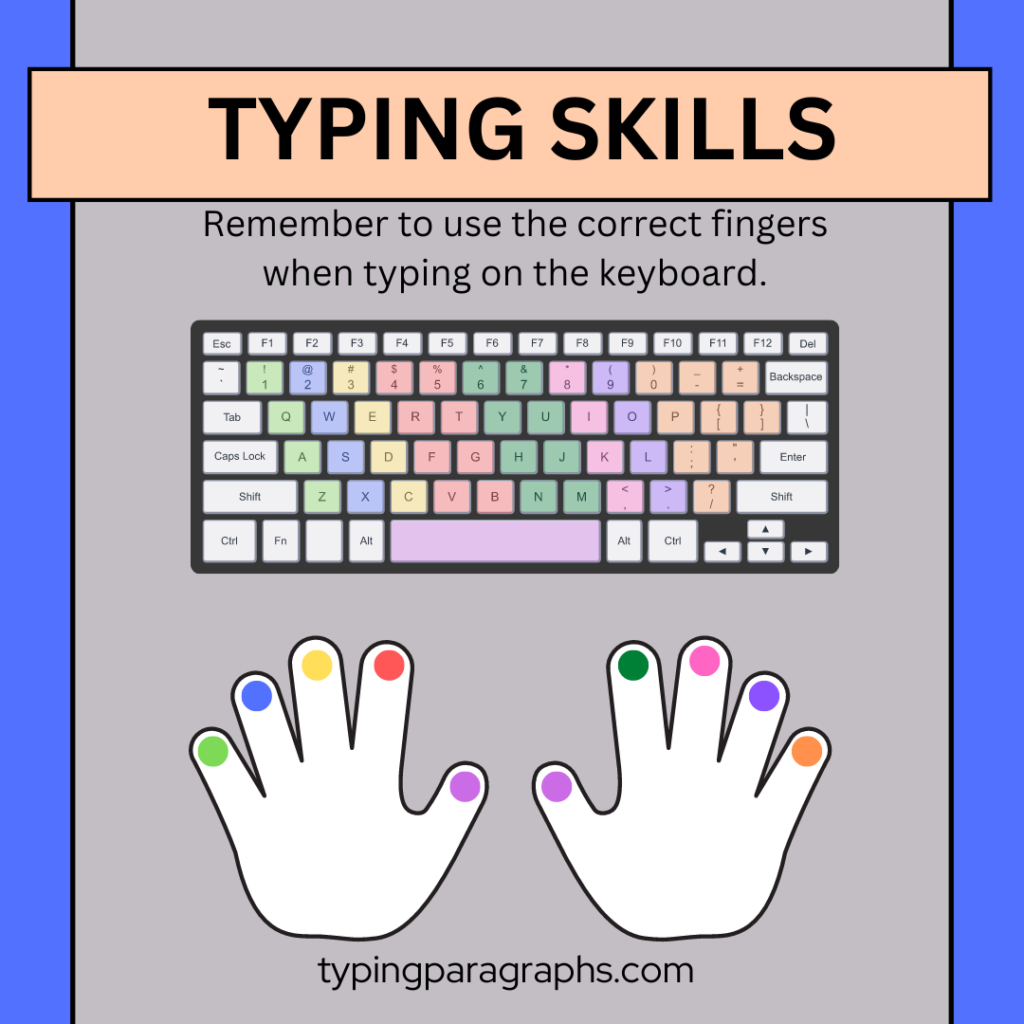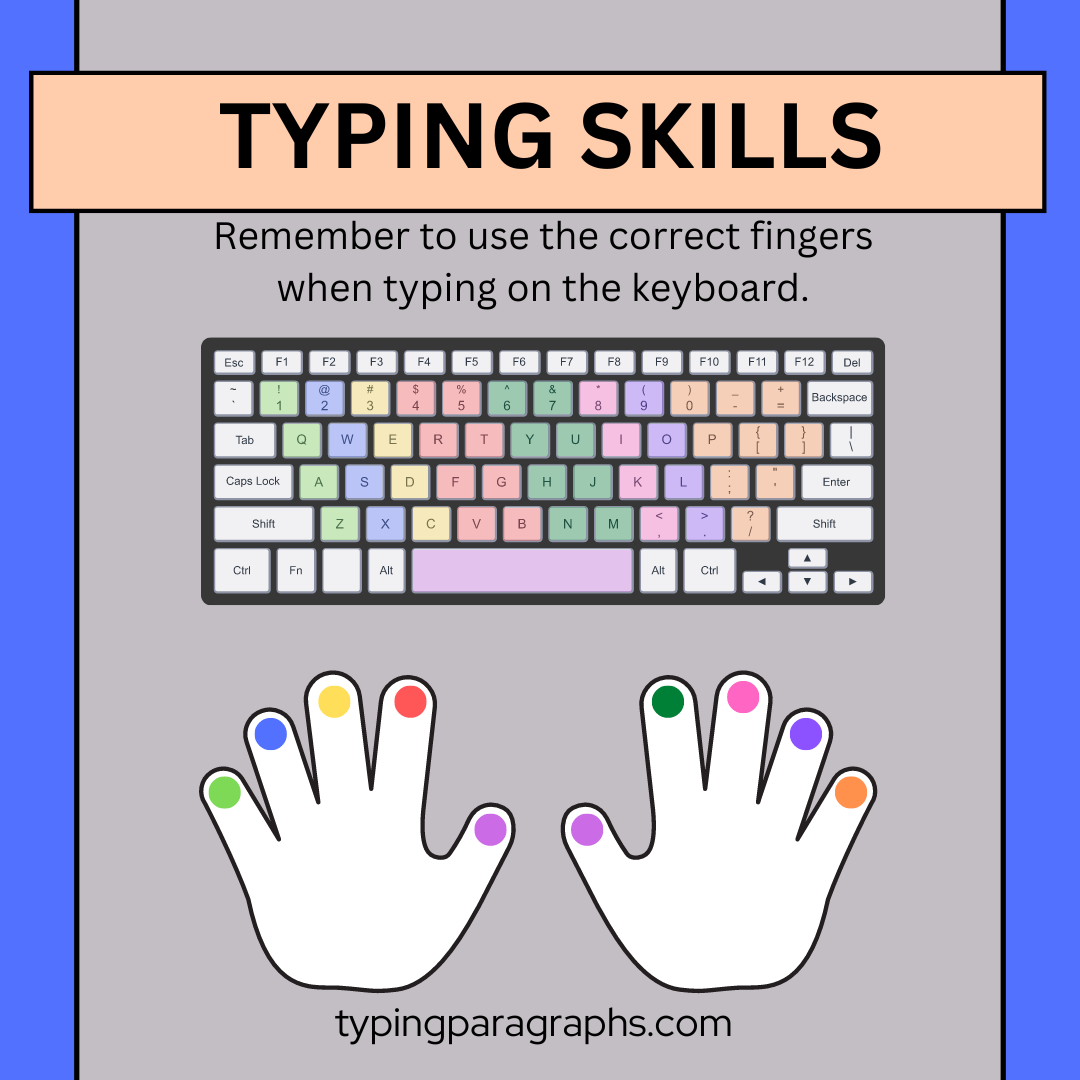Mastering Typing Efficiency: A Comprehensive Guide to Proficient Typing

Learning how to type proficiently is an invaluable skill in today’s digital age, enhancing productivity and efficiency in various aspects of life. Whether you’re a student, a professional, or simply looking to improve your typing speed, mastering this skill can significantly boost your performance. In this guide, we’ll explore effective strategies and techniques to help you learn typing efficiently and quickly.
Understanding the Basics of Typing
Before diving into advanced techniques, it’s essential to grasp the fundamentals of typing. Please familiarize yourself with the layout of the keyboard, understanding the position of each key and its corresponding finger. The standard keyboard layout is known as QWERTY, named after the first six letters in the top row. Practice proper hand positioning with your fingers resting on the home row
(ASDF for the left hand and JKL; for the right hand).
Start with Typing Exercises
Begin your typing journey with simple exercises designed to improve accuracy and speed. Numerous online platforms offer typing tutorials and interactive lessons tailored for beginners. Start with basic drills focusing on individual letters and gradually progress to full words, sentences, and paragraphs. Consistent practice is key to building muscle memory and improving your typing proficiency.
Utilize Typing Software and Games
Harness the power of typing software and games to make learning enjoyable and engaging. Programs like TypingClub, Keybr, and TypingMaster provide structured lessons, real-time feedback, and customizable training plans to suit your skill level. Additionally, typing games such as TypeRacer and NitroType offer a fun way to practice typing while competing against others.
Practice Touch Typing Techniques
Touch typing is a method where you type without looking at the keyboard, relying solely on muscle memory. This technique enhances speed and accuracy, allowing you to focus on the screen rather than the keys. Practice touch typing by using the correct finger for each key, minimizing hand movements, and maintaining a steady rhythm. Initially, it may feel challenging, but with perseverance, you’ll gradually improve your proficiency.
Set Realistic Goals and Track Progress
Establish achievable goals to track your typing progress effectively. Whether it’s increasing your words per minute (WPM) or reducing error rates, having measurable targets provides motivation and direction. Use online typing tests to assess your current speed and accuracy and monitor your improvement over time. Celebrate milestones along the way to stay motivated and committed to your typing journey.
Take Regular Breaks and Stay Patient
Learning to type proficiently requires patience and perseverance. Avoid burnout by taking regular breaks during practice sessions, allowing your mind and fingers to rest. Remember that typing is a skill that improves gradually with consistent effort and practice. Stay patient with yourself, embrace mistakes as opportunities for learning, and maintain a positive attitude throughout your typing journey.
Conclusion
Mastering typing skills is a valuable asset that can enhance your productivity and efficiency in various personal and professional endeavors. By understanding the basics of typing, practicing regularly, utilizing typing software and games, and embracing touch typing techniques, you can learn to type quickly and accurately. Set realistic goals, track your progress, and stay patient and persistent on your journey to becoming a proficient typist. With dedication and commitment, you’ll soon type with confidence and speed, unlocking a world of opportunities in the digital realm.
How to Type Faster: A Comprehensive Guide to Improving Your Typing Speed
10 Tips for Enhancing Typing Accuracy: Master Your Keyboard Skills
8 Enhancing Typing Skills: Building Muscle Memory for Efficient Typing


2 Comments